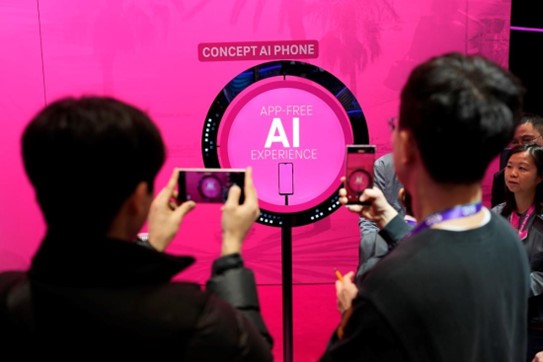As we look back at the last 12 months, it’s safe to conclude that few industries around the world have been left untouched by the hype surrounding Generative Artificial Intelligence (Gen AI). And in communications, it’s no surprise that we’ve all been fascinated by its impact and potential use cases throughout the course of 2023.
AI tools aren’t new. In fact, we’ve all been using them in various ways for some time. But what’s accelerated their hype in the past year around the globe, has been the public availability of conversational tools based on Large Language Models (LLMs) like ChatGPT and Claude. This world-wide obsession has propelled Gen AI into the wider consciousness, leading to more comms and marketing professionals to explore how it can be applied to support the achievement of wider business goals. And, while Gen AI certainly offers massive opportunities, it also raises significant questions about its use and the implications for brands and stakeholders both today, and in the future. And it varies from region to region, as our LATAM partner, Sherlock Communications, explains. AI adoption in the region stands at 45%, according to an IDC survey, with Brazil in the lead, with 63% of companies adopting the technology. However, both agencies and clients are increasingly recognising the limitations of these tools, as they fall short of replacing a human presence due to their propensity for errors and lack of strategic thinking. A key discussion surrounding AI-generated content at present in the region, is deciding who creation can be attributed to. Many call it plagiarism, arguing content shouldn’t be openly replicated. Others claim content generated by AI is new.
We recently shone light on how those at the vanguard of comms innovation are turning these technologies to their advantage as part of a newly released report entitled ‘AI Gets Real’.
The fascinating findings identify emerging best practice, and paint a clear picture of how comms leaders currently believe these tools will evolve over the next couple of years. In-depth interviews with several in-house comms leaders at global businesses feature, including Adyen, BT Digital, Feedzai, Google Cloud, Onfido, Qlik and VMware, as well as a respected industry commentator PRovoke’s Maja Pawinska Sims.
For those looking to explore and use AI in 2024 – across multiple regions and cultures, our recommendations are as follows:
Ensure AI policies are adaptable and well-communicated. These need to be broad enough to encourage innovation in a rapidly evolving environment, robust enough to fully protect data (and reputation) from IP loss, data accuracy and security, and ethical usage perspectives, and agile enough to incorporate learnings. Our German partner, Maisberger, explains that AI is not a trend, but a logical development of technical possibilities. As communications specialists, we should focus on explaining AI and its concrete benefits in more detail. A strategic approach includes, for example, addressing learnings from use cases, highlighting flagship projects, but also failures, in order to learn from them.
Put a small taskforce in place to help understand how such technologies could drive efficiencies by incorporating AI into workflows. The group should be responsible for examining how it could lead to better outputs. But empower everyone to experiment – give the whole team access to the established and emerging technologies. Our Nordics partner, Westmark, agrees, saying these digital assistants will be a necessity to stay ahead, and agency management must ensure that AI is well integrated in working processes.
Think about what your company’s AI story looks like. Everyone is clamoring to get a voice on AI right now which is leaving media feeling inundated. But that delivers a huge opportunity for the brands who have can carve out a different, compelling story to tell – that might be giving execs a platform to offer bold views on where AI is heading, or a willingness to call out governments or regulators for a lack of focus. At the same time, as our German partner Adel & Link warns, as AI becomes more advanced and difficult to detect, it can exacerbate the spread of misinformation. Since the media landscape has changed dramatically and many now rely on social media and “snackable content” for information, fostering media literacy has become paramount.
In times of declining trust in the media, communications professionals have an important part to play: we need to be aware of evolving fake news tactics, particularly in light of AI, in order to continue using and disseminating accurate information. This includes keeping up to date with fact-checking strategies employed by reputable news agencies and outlets, in order to do our part in mitigating the risks posed by fake news.
The outlook for 2024
It’s rare to find a technology that has performed as expected, and Gen AI is likely to be no different. While in Gartner’s view it might be at the ‘Peak of Inflated Expectations’ right now, its impact on our industry globally is assured. Our Global Network partners have been developing innovative ways of using it to enhance what we do as communicators this year, and that certainly looks set to continue into 2024.
So, if you’re keen to discuss how our network can support you on your brand journey in 2024, please get in touch here.




